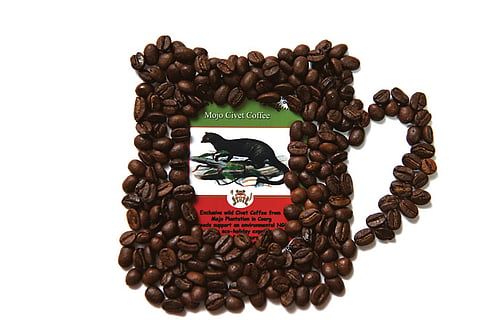

A month ago, when I was staying in a tent at the Rainforest Retreat, an organic coffee plantation in Madikeri, I had to climb up a small hill whenever I wanted to catch a spot of cell phone signal. Each time, I was followed by Venus, the amiable Alsatian-in-residence, who ran around in delirious circles picking up scents while I admired the panoramic view of the forest canopy. On one occasion, Venus and I both stopped to stare at the same thing what looked like a rope of snugly coiled bronze-coloured cowry shells. We&rsquod stumbled upon the droppings of the brown palm civet cat, a shy, nocturnal furry, long-tailed creature. One that is usually seen in pictures taken on camera traps.
Anurag and Sujata Goel, the biologists who run the plantation, regularly stumbled upon such piles of civet poo before they were persuaded to make their own version of kopi luwak &mdash the fabled epicurean beverage that first originated in the colonial plantations of Indonesia in the early eighteenth century. Unlike the Indonesian version, and the Vietnamese knock-offs produced from captive Asian palm civets paddled with sticks until they eat the coffee berries, the Goels&rsquo civet coffee is produced by the brown palm civet, which is only found in the Western Ghats, south of Goa.
The civet-processed version is rich, smoky, aromatic, and entirely worth the Rs 5 per gram price tag.
